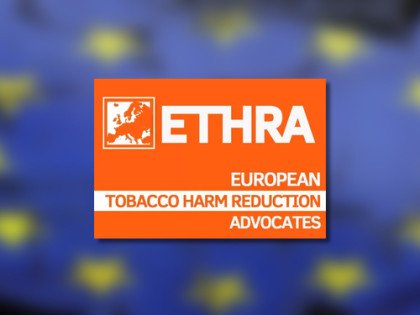“Flavours in e-cigarette liquids are a critical part of the success formula for quitting smokers,” states the consumer organisation Acvoda. It says that all of its members successfully quit smoking with the help of electronic cigarettes, in which flavours have played an important role.
“It is unbelievable that there is no regard for that, while the State Secretary wants to reach a smoke-free generation.”
Acvoda chairman Sander Aspers is astonished that State Secretary Blokhuis cites the argument of under aged vapers as justification for his intention: “The reasoning that flavours are specifically on the market to lure young people is simply a fallacy. From our supporters we know that the tobacco flavours, which the Secretary of State wants to keep, are the least wanted flavours among adults. Recent research by RIVM and the sales figures for liquids also clearly show this. By only offering tobacco flavours, you let vapers get used to the taste of tobacco, which actually reinforces the relapse (or switch by young people) to real tobacco.”
The organisation adds that bans on flavours in other countries clearly show that such a ban has no influence on the sales figures. (Sales, which are already prohibited by law in the Netherlands to persons under the age of 18). The ban on flavours is therefore nothing more than failing enforcement of existing legislation.

Acvoda isn’t wrong, there has been a wealth of emerging evidence that restrictions applied to reduced harm products simply lead to increased levels of smoking. “When San Francisco banned flavours, 18-24 year old smoking increased from 27% to 37%,” Foundation for a Smoke-Free World’s Charles Gardner said.
According to Aspers, government policy relies too much on “crooked reasoning and factual inaccuracies”. According to him, the most recent figures from the Trimbos Institute show that the number of young people who experiment with e-cigarettes is decreasing and that there is little or no structural use.
In the United Kingdom too, where e-cigarettes are actively promoted as a less harmful alternative to smoking, there is no growth in the number of young people using e-cigarettes.
Finally, “the theory that vaping is a steppingstone to smoking has never been proven. To be more precise, it is quite the opposite. Vaping helps people quit more often with less struggle than any other means of helping people to quit smoking”.
Again, evolving evidence demonstrates supports Aspers’ statements. Despite the persistent whine that vaping is a ‘gateway’ to smoking for non-smoking teens, falling smopking rates suggest otherwise. In March, UCL’s Lion Shahab, Emma Beard and Jamie Brown concluded in a study looking at American teens: “Over the time period considered, e-cigarettes were unlikely to have acted as an important gateway towards cigarette smoking and may, in fact, have acted as a gateway away from smoking for vulnerable adolescent.”
Aspers finds the most poignant thing that a demonstrably less harmful alternative to smoking is denounced by the government and the relevant authorities.
“There is a real opportunity for all parties involved if people could be helped with an alternative that is at least 95 percent less harmful,” he added. “Scientists, policy makers and healthcare professionals would normally embrace all of that. But in the case of smoking, which causes many victims in the Netherlands every year, a legally available, proven less harmful alternative is tainted with factual inaccuracies. Health policies need to be effective and the flavours in e-cigarette liquids have played an important role for our members to definitively renounce the cigarette. It is therefore a complete insult to all those people who purposefully use an e-cigarette to ban flavours. In addition, you may wonder who benefits from vapers stopping buying their favourite liquids in (legal) Dutch stores and turning to the black market – the last thing we want to see here are the unsafe conditions we saw in the US last year.”
Related:
- Acvoda – [link]
- “The impact of a comprehensive tobacco product flavor ban in San Francisco among young adults” by Yang et al. – [link]
Dave Cross
Journalist at POTVDave is a freelance writer; with articles on music, motorbikes, football, pop-science, vaping and tobacco harm reduction in Sounds, Melody Maker, UBG, AWoL, Bike, When Saturday Comes, Vape News Magazine, and syndicated across the Johnston Press group. He was published in an anthology of “Greatest Football Writing”, but still believes this was a mistake. Dave contributes sketches to comedy shows and used to co-host a radio sketch show. He’s worked with numerous start-ups to develop content for their websites.
Join the discussion
The Great POTV 2023 Round-up Part 4
Managing to keep up? By now the mince pies will be sitting heavy and the thought of turkey leaving you nauseous. Relax and plough through the final three months of 2023 on POTV with some antacids
The Great POTV 2023 Round-up Part 3
January to June has been pretty exciting, right? Personally, I thought the stuff about elephants was the best bit. Here is a summary of our coverage from July to September
ETHRA Writes to SANT Committee
European consumer advocacy umbrella organisation ETHRA has written to the SANT Committee on non-communicable diseases
ETHRA: It's Time To Act
The time to act on a new European Union consultation is now, according to ETHRA (European Tobacco Harm Reduction Advocates)











